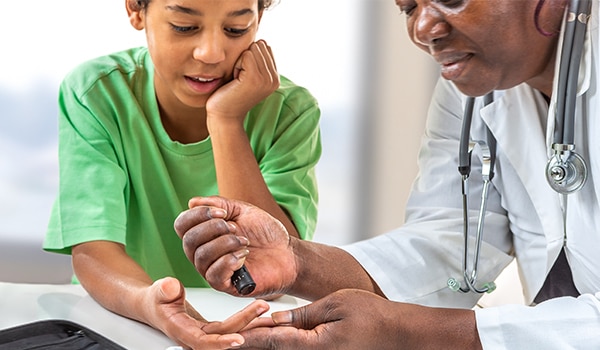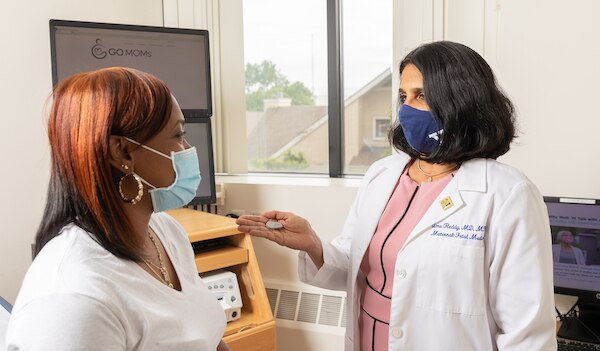How Do You Recognize Rare and Atypical Diabetes?

Rare and atypical forms of diabetes are often misdiagnosed or undiagnosed. Learn what to look for and why this is important to the future of diabetes care. Read more
Due to current HHS and NIH restructuring, the information provided on niddk.nih.gov is not being updated. Please refer to nih.gov.
Results 1 - 10 of 43 for: Research Advancements

Rare and atypical forms of diabetes are often misdiagnosed or undiagnosed. Learn what to look for and why this is important to the future of diabetes care. Read more

NIH-funded researchers complete first study comparing commonly used type 2 diabetes medications. Read more

Findings from the SIBSIGHT study demonstrate the potential long-term value of teaching new parents a childhood obesity prevention strategy. Read more

People with diabetes are at increased risk for gastroparesis—a digestive disorder that can cause severe symptoms and affect quality of life. Read more

The goal of precision nutrition is to match individuals with the dietary guidance that optimizes their health. This approach holds great promise for preventing and treating diabetes. Read more

NIDDK researchers report findings from a first-of-its-kind trial on the risk of serious complications from youth-onset type 2 diabetes. Read more

As we celebrate 100 years since the discovery of insulin, NIDDK researchers look back—and look ahead—at the Institute's work advancing diabetes research. Read more

This NIDDK-supported study is working to better understand blood glucose levels throughout pregnancy. Read more

Check out recent NIDDK Facebook Live interviews on topics that included tips for improving health, reducing diabetes complications, and diabetes research for at-risk groups. Read more

This NIDDK-supported study is working to discover new rare and atypical forms of diabetes. Read more
We welcome comments; all comments must follow our comment policy.
Blog posts written by individuals from outside the government may be owned by the writer and graphics may be owned by their creator. In such cases, it is necessary to contact the writer, artist, or publisher to obtain permission for reuse.